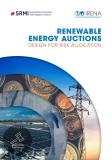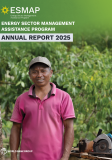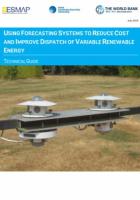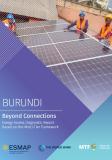Publications
This technical guide is the fourth in a series of four technical guides on variable renewable energy (VRE) grid integration produced by the Energy Sector Management Assistance Program (ESMAP) of the World Bank and the Global Sustainable Electricity Partnership (GSEP). It provides guidance on the role and benefits of forecasting as a cost-effective operational solution to manage the uncertainty of VRE generation and facilitate the integration of larger shares of these resources in the energy mix.
The guide focuses primarily on the types of forecasting methods and how physical and statistical models are used for developing short- to long-term forecasts. Technological advances in weather forecasting, together with better data on historical performance of renewable energy, allow significantly improved forecasting accuracy of VRE generation, which results in more efficient utilization. Examples from developing countries illustrate how the approach to forecasting varies depending on the country’s electricity market structure and requirements.
Energy Sector Management Assistance Program. 2019. Using Forecasting Systems to Reduce Cost and Improve Dispatch of Variable Renewable Energy. ESMAP Technical Guide;. World Bank, Washington, DC. © World Bank. License: CC BY 3.0 IGO. https://openknowledge.worldbank.org/handle/10986/32072




